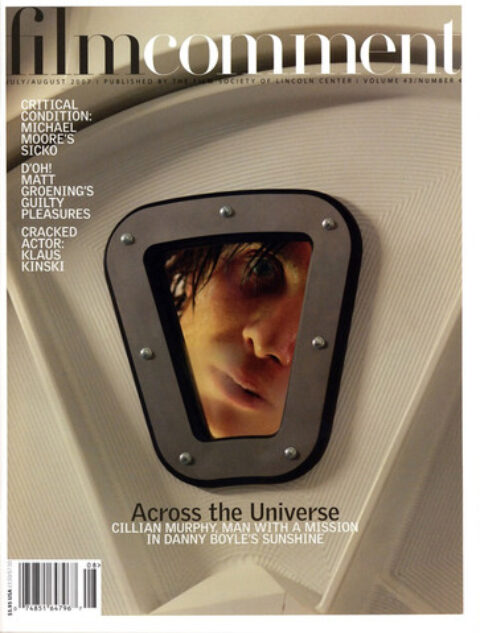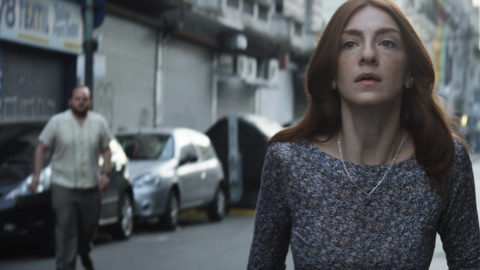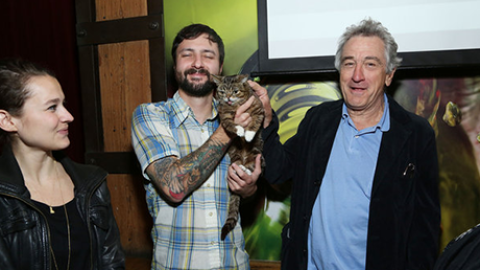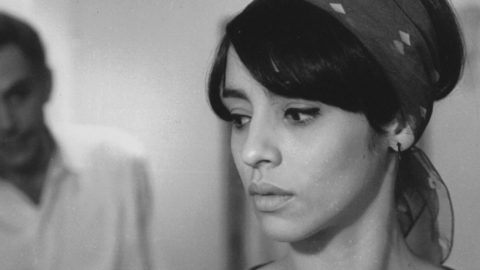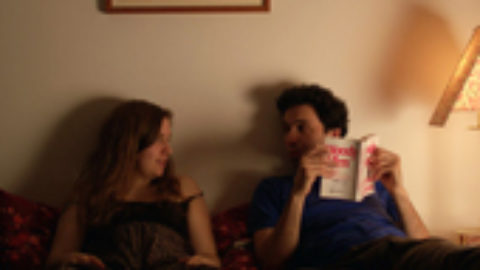It’s practically axiomatic that New York City theaters can offer the film festival experience all year round. With the tireless programming of Film Forum, the Walter Reade, Anthology Film Archives, BAM, and AMMI, just for starters, it’s possible to immerse yourself each and every day in movies, new or old, little or well known, from all parts of the world—just ask the Cinemaniacs. So mounting an annual film festival that presents something above and beyond the usual is no easy undertaking. Tribeca, now in its sixth year, still seems to be finding its way.
Even with its scaled-down numbers, roughly 150 features, reduced from last year’s 170, over 12 days is a lot to get a handle on. (The prices, on the other hand, skyrocketed almost 50 percent to $18, up from last year’s $12, a lot to gamble on an unknown quantity.) And its frustratingly scattered locations, from East 11th to East 72nd, Kips Bay to Chelsea West, certainly doesn’t make it any more manageable. “If this is the Tribeca Film Festival, why isn’t it in Tribeca?” a Loews 34th Street ticket taker asked me rather indignantly one day. Valid question. Of course, there aren’t enough Lower Manhattan theaters to house the fest’s entire selection, but something isn’t right if it’s possible to be a frequent attendee without ever stepping foot onto Tribecan pavement.
The festival aspires to be a big, glitzy affair, often favoring star power over quality. In effect, its more worthwhile films can easily get lost in the shuffle. Luckily, for every Unearthed, a creature-horror abomination; West 32nd, Michael Kang’s sloppy, misogynist thriller set in New York’s Korean underworld; and Watching the Detectives, in which an excruciating Lucy Liu teaches dull video-store owner Cillian Murphy that living movies are better than viewing them, there was one American indie that managed to stand out.
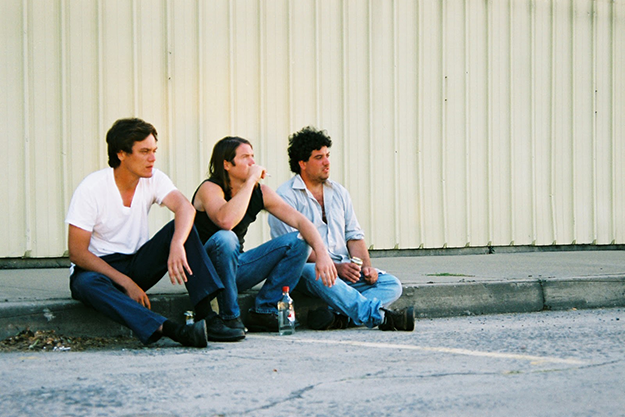
Shotgun Stories
Shotgun Stories, written and directed by Jeff Nichols, is a testosterone-heavy tale of fraternal rivalry taken to tragic extremes after three brothers butt heads with their less-civilized half brothers at their father’s funeral. With its underlying intelligence, Southern gothic sensibilities, dark humor, and pervasive sense of dread, the film, despite being fairly overwrought, grips throughout, as the men settle their lifelong differences once and for all. Michael Shannon, who is quickly developing into one of his generation’s finest actors, leads an all-around impressive cast of mostly unknowns.
Poles apart in tone but not merit is actress Mary Stuart Masterson’s directorial debut The Cake Eaters, a candid, quietly compelling film that centers on Georgia, a 15-year-old suffering from a terminal neurological disorder known as Friedrich’s Ataxia. Kristen Stewart, steering clear of histrionics, is absolutely convincing as the spunky, fragile girl, who, knowing that her days may be numbered, sets out to lose her virginity to a bottled-up youth (Aaron Stanford), whose family turns out to be closely connected to Georgia’s in surprising ways.
Nobel Son may be flimsier than Shotgun Stories and The Cake Eaters, but its chances for commercial success are far greater. An ensemble of recognizable faces (Mary Steenburgen, Bill Pullman, Danny DeVito, Eliza Dushku, to name a few) back Alan Rickman, who again displays his comic genius, as an almost inhuman cad whose impending Nobel Prize sets off a chain of events, beginning with the kidnapping of his son. The film tries a little too hard to attain “cool” status—e.g., a persistent techno score by Paul Oakenfold—but it’s still a fast and funny black comedy with a healthy dose of gore, and twists that keep on coming.
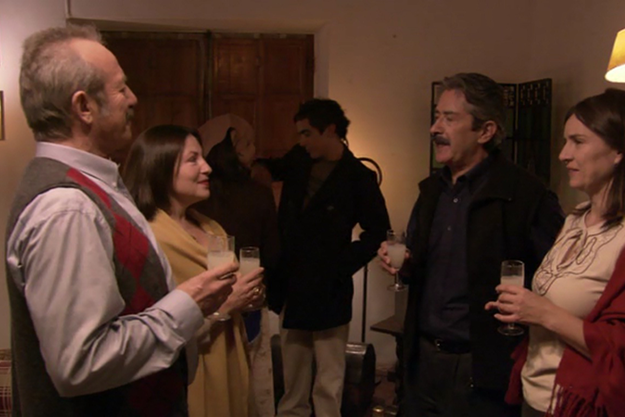
Fiestapatria
If Christopher Guest were to take on the professional poker world, it might come off something like The Grand, Zak Penn’s sporadically funny mockumentary, a step up from his debut, Incident at Loch Ness. One of the 14 sports movies featured in the Tribeca lineup thanks to a collaboration with sponsor ESPN, The Grand will appeal almost exclusively to World Series of Poker addicts. (Curtis Hanson’s utterly insulting poker-themed Lucky You, which also premiered at Tribeca, appealed to no one.) Among actors and actual poker pros, Woody Harrelson stars as a deadbeat trying to keep his family’s Las Vegas casino legacy alive, but it’s Werner Herzog who steals the show as “The German,” a hot-blooded, brass-knuckles-wearing competitor who travels with a menagerie of caged animals, in case the urge to kill arises.
This year’s international selection included many carry-overs from other, lower-profile festivals, with Born and Bred, Taxidermia, and Times and Winds some of the highlights. In more uncharted terrain, Black Butterfly, an unpredictable drama from Peruvian director Francis J. Lombardi, about a young, respected schoolteacher who does an about-face when her fiancé is murdered, was worth a look. But the closest thing to a discovery came with Fiestapatria, from Chile, which despite drowning in an overabundance of characters and political agenda—much of will be lost on American audiences—still managed to be lively and entertaining. The setup of two large families coming together for a wedding, with secrets spilling left and right, is by no means groundbreaking, but is used to good effect here.
The Restored/Rediscovered section, as always, accounted for some of the festival’s highest points. Shot by the legendary Russian cinematographer Sergei Urusevsky (I Am Cuba, Cranes Are Flying) and directed by Grigori Chukrai, The Forty-First (56) is lavish, emotional delight, with a dreamy look all its own. The title refers to the number of kills a female Red Army sniper would have tallied had she not missed her latest target. She and the man in question, a White Russian soldier, subsequently embark on a full-blown romance while stranded on an island together, though the threat of him becoming number 41 remains ever present.
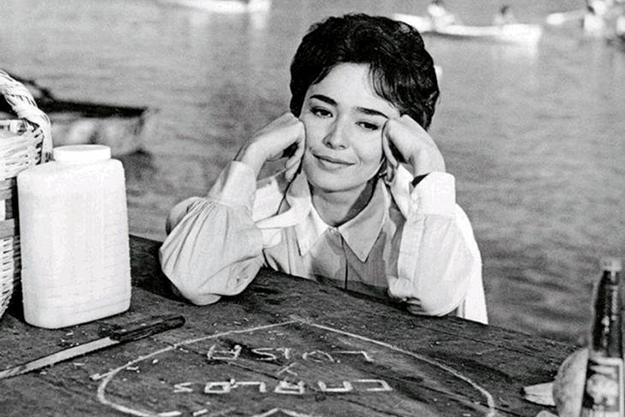
Autumn Days
A rarely seen gem from Mexico, Autumn Days (62) succeeds above all in making its audiences squirm. Pina Pellicer plays an attractive, seemingly normal young woman whose head is so stuck in the clouds that she takes her fantasies as far as convincing her bake-shop co-workers and boss (who is in love with her) that she has gotten married, becomes pregnant (yes, a pillow), and is living happily with husband and child. But we know the charade can last only so long…
Somehow this film’s lead character is an apt metaphor for the Tribeca Film Festival itself: something full of potential going to inordinate lengths to appear more dynamic than it really is—quite unnecessarily. Here’s hoping for a more down-to-earth seventh year.



